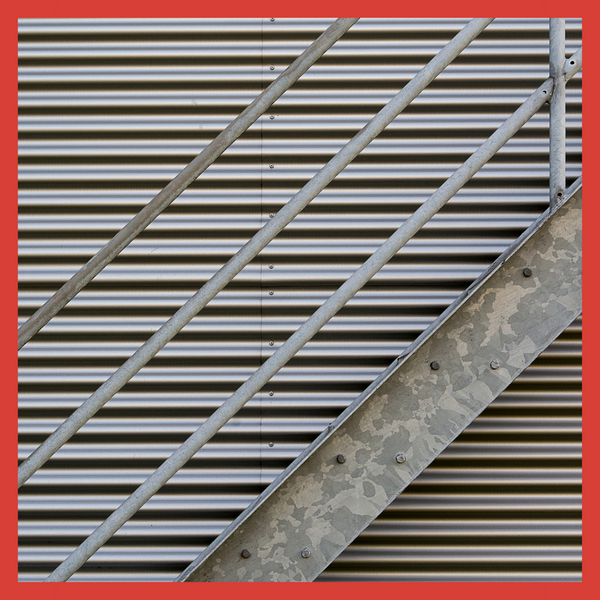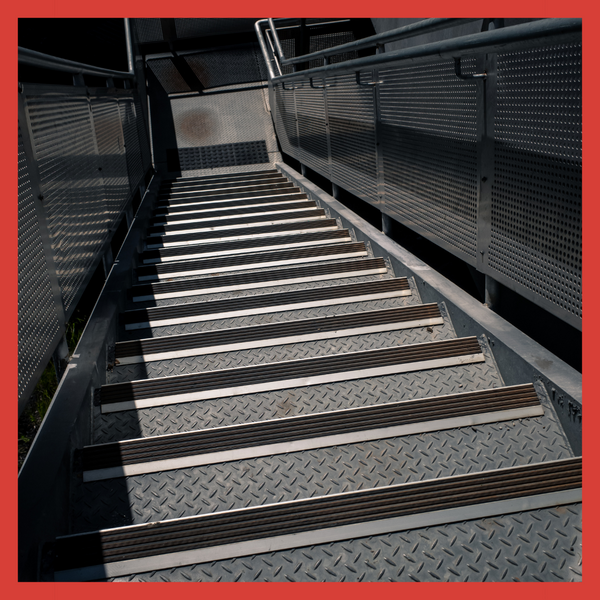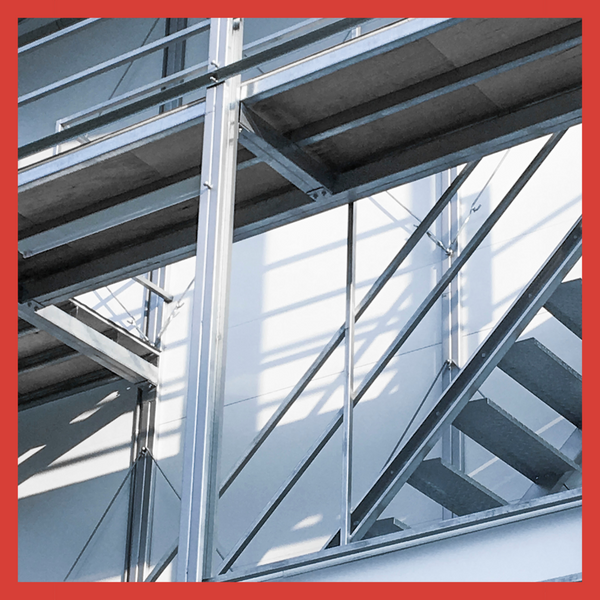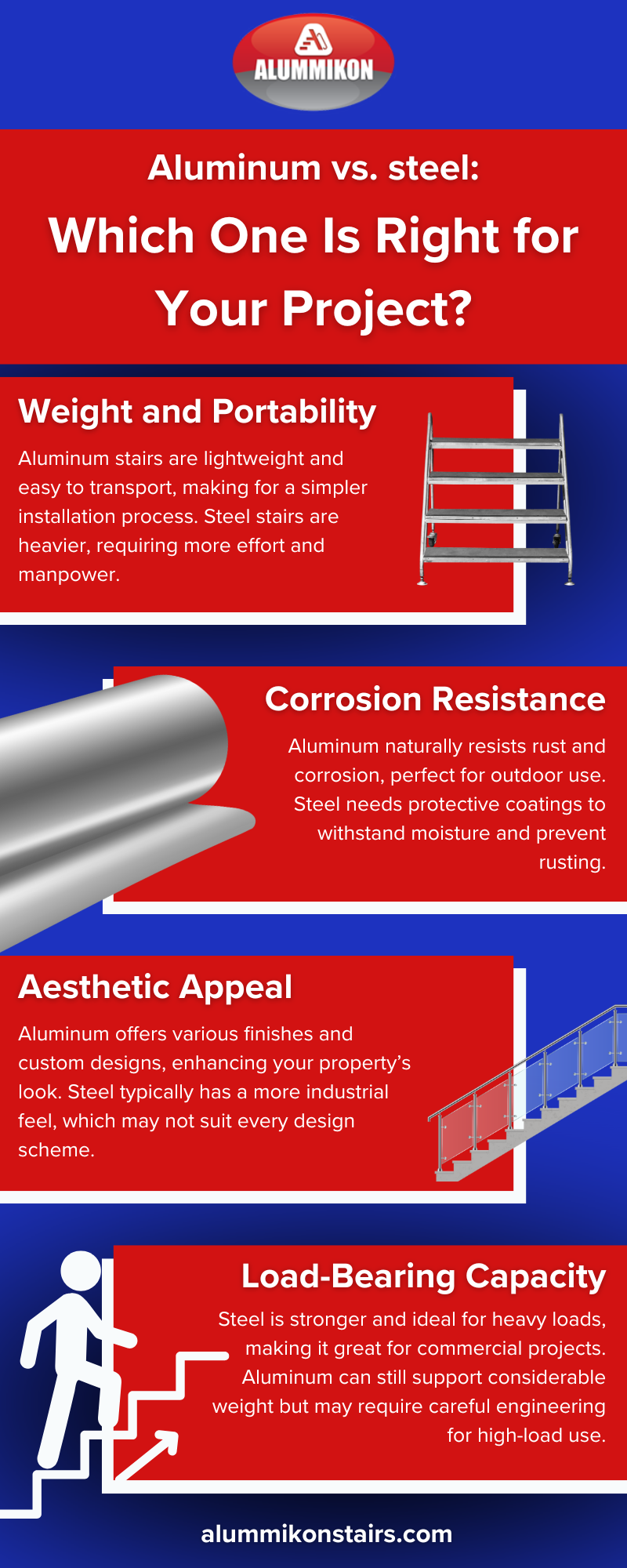When it comes to selecting the best material for stairs, the decision often boils down to a choice between aluminum stairs and steel stairs. Each material has its own unique set of benefits and drawbacks, making the selection process challenging for homeowners, builders, and architects alike. Understanding these differences is essential for making an informed choice that aligns with your specific needs and project requirements. Learn from Alummikon Stairs today.
Aluminum vs. Steel Stairs: Which One Is Right for Your Project?
Aluminum vs. Steel Stairs: Which One Is Right for Your Project?

Weight and Portability
One of the most noticeable advantages of aluminum stairs is their lightweight nature. Aluminum is significantly lighter than steel, making it easier to transport and install. This can be particularly beneficial in residential settings, for temporary installations, or for DIY projects where ease of handling is a priority. The portability of aluminum also means that if your design requires frequent adjustments or relocations, you can do so without as much effort. Conversely, steel stairs are heavier, which may complicate installation and require more manpower or specialized equipment.

Corrosion Resistance
Corrosion resistance is another critical factor to consider when choosing the material for your stairs. Aluminum naturally forms a protective oxide layer that prevents rust and deterioration, making it an excellent choice for outdoor settings or areas with high humidity. As a result, aluminum stairs tend to maintain their appearance and structural integrity over time, requiring minimal upkeep. On the other hand, steel stairs can rust when exposed to moisture unless they are treated with protective coatings, which can add to maintenance costs. For projects located in coastal areas or places with harsh weather, aluminum may deliver more reliable long-term performance.

Aesthetic Appeal
Visual appeal plays a significant role in many projects, whether it’s a residential renovation or a commercial construction endeavor. Aluminum stairs offer a wide variety of finishes, colors, and styles, allowing for greater customization to match the design of your property. This flexibility makes aluminum a popular choice for aesthetic-focused projects. Steel stairs, while attractive in their own right, often present a more industrial look, which may not suit every design scheme. If you're aiming for a modern and sleek appearance, aluminum may provide the edge you need to achieve your vision.

Load-Bearing Capacity
When it comes to load-bearing capacity, steel leads the pack. Due to its inherent strength, steel is capable of supporting heavy loads without compromising its structural integrity. This trait makes steel stairs a preferred option for commercial projects or industrial settings, where maximum strength is often necessary. However, aluminum stairs can still be engineered to meet considerable load demands, making them a viable alternative for many residential applications. For projects where heavy foot traffic, equipment, or machinery will utilize the stairs, it may be prudent to consult structural engineers to assess specific requirements.

Maintenance Needs
Maintenance is a key consideration for any building project, and it often varies significantly between materials. Aluminum stairs are known for their low maintenance needs. The corrosion-resistant qualities of aluminum mean that you won’t need to worry about repainting or replacement as frequently as you might with steel stairs, which require special coatings and regular inspections to prevent rust. While aluminum may have a higher upfront cost, the savings in maintenance over time can often justify the investment. For those looking for a more hands-off approach, aluminum stairs can be the more hassle-free choice.
At Alummikon Stairs, we specialize in providing high-quality aluminum stair solutions tailored to your unique needs. Our dedicated team is here to help you navigate these important choices and ensure you select the best material for your project. Contact us today to discuss your vision and discover how we can bring it to life with the perfect stair system!

